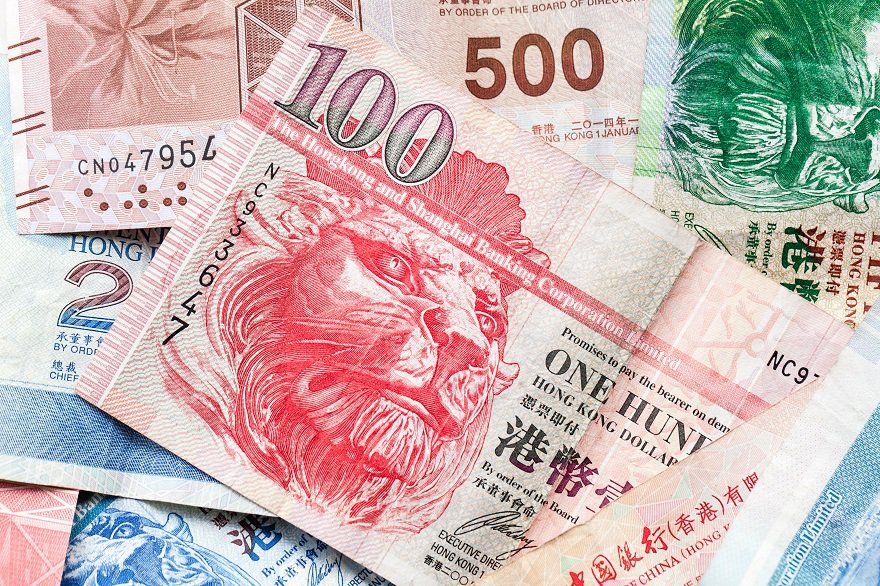Moving to Hong Kong from Dubai in 2021 takes careful planning and attention to details and documentation. We provide everything you need to know before moving from Dubai to Hong Kong. Start your move today by obtaining up to 6 competitive moving to Hong Kong quotations FREE.
Moving to Hong Kong makes one imagine an exotic, vibrant city, an incredible variety of delicious cuisine and a sightseeing and shopping extravaganza. But what are the key challenges people face when relocating to Hong Kong?
The key when relocating to Hong Kong is research and preparation. Hong Kong is intoxicating and exhilarating however, pollution and congestion are problematic and residential rents are very expensive, so budgeting is vital. Healthcare, schooling and climate are all notable considerations ahead of your move to this amazing location.
Fortunately, we cover all this and much more in our ultimate moving to Hong Kong guide.
There are a lot of great reasons why you should choose to move to Hong Kong. One of these benefits is safety. Despite what you hear on the news, Hong Kong is still one of the safest places in the world, with very minimal incidents of crime and violence. Another good reason to move to this side of the world is the fact that it's easy to buy properties here. Accessing their healthcare system is also not an issue. Plus, education is free.
It is extremely important to focus on budgeting your finances. Hong Kong is still one of the most expensive places in the world. Failing to prepare in this area can pose a serious challenge to your transition. But, it’s not all obstacles when you move to Hong Kong. The region is strongly linked to the influences of the West, popular culture, and the UK. This has made it a seasoned and thriving location for ex-pats.
There is a truly international atmosphere. Communicating with the locals is made a little easier here because English is widely used.
Hong Kong is frenetic. It is true to say you will need to pack a fair share of patience when you move to Hong Kong. Since this region has a high number of inhabitants and everyone is constantly busy, it's normal to see long queues and traffic jams. The lack of space means finding a house or an apartment can be challenging.
If you are not completely ready for your move, don't worry. Today, we will help you prepare for a smooth move to Hong Kong. We will also share with you tips on how you can thrive in the country. Take this time to know more about the country's people, customs, traditions, ways of living, and social systems. Through this, you will have a better understanding of the country and the people living there. Fitting in won't be a problem once you're there.
Remember the saying 'When in Rome, do as the Romans'? The same could be said when you are in Hong Kong. This is not to say you have to mimic the people of Hong Kong, but it certainly helps to try and form a deeper understanding of their ways of living.
You're in a foreign country, and if there's someone who must adjust, that's you. This is not a bad thing, though. It goes to show that you respect the country, its ways and its people.

'Giving face' is one of the customs you must know as this is as important in Hong kong as it is in China. Respecting your superiors, giving compliments, and praising others are all positive acts that help one earn 'face.' However, if you embarrass yourself or others by being overly critical and disrespectful, you 'lose face.'
When greeting people in Hong Kong, you need to lower your eyes and give a light handshake. This is interpreted as you respect the other person, and you're waiting to be properly introduced to him. These rules are especially applicable for job applicants and those working in a subordinate position. If you're the one holding a higher position, you should be the one initiating the handshake. You should also be the one maintaining more eye contact.

Joss sticks release fragrant smoke inside Man Mo Chinese Buddhist Temple in Hong Kong.
If there's one thing you need to know about addressing someone when you're in Hong Kong, that would be the fact that it's confusing. It's usual for locals to have three different names -- given name, generation name, and family name. The good thing now is because most foreigners have a hard time pronouncing Chinese names, some of the locals also adopted Western names aside from their given Chinese names.
When you greet someone with a title, you need to address that person with 'Madam,' 'Mister,' 'Professor,' or 'Doctor.' Remember never to use the first name until your colleague or host gives you the go signal. When you start calling the person by their first name, you won't be switching to their other names later.
In Hong Kong, it's typical for people who are conversing to stand close to each other. However, no matter how close they are, there's nobody contact at all. This means that you should never kiss, hug, or pat someone on the back, especially if the other person has a higher position than you. The latter is considered rude and offensive, just like winking at somebody.
If you chance on talking to a local you don't know very well for the first time, avoid expressing your criticism and opinion freely. It would also be best to avoid talking about politics. These acts may be interpreted as rude or vulgar. You see, communicating with the people in Hong Kong requires thought and attention on what you're saying in order to avoid misunderstandings.
Obtrusive and loud behaviour is also a no-no when you try to blend in with the locals. No holding hands in public, no public display of affection, and no drinking and smoking in public. All these acts are greatly frowned upon.
There’s no way of sugar-coating it, Hong Kong is the tenth most expensive place to live on earth and the most costly place in Asia. International schooling, healthcare, and especially accommodation elevates Hong Kong's already eye-watering costs.
Living in the central business districts and major urban area in Hong Kong will cost the equivalent of living in a major city in Australia, America, and western Europe. This is the reason why this region is considered as one of the most expensive places for ex-pats.
On average, if you live in a household with no children, you can expect your income to go to the following expenses:
Consumer goods and food tend to be more expensive in Hong Kong than in other parts of the world. The reason for this is simply because most goods sold here are imported. If you want to buy items from the US or Europe, expect that you will have to pay even more.
State education is free of charge and might be a good option if you plan to remain in Hong Kong long term. However, most ex-pats enrol their children into private international schools (read more about this in our section on children).
Public healthcare is a very good standard but over-subscribed and the majority of ex-pats should try to negotiate private medical cover for themself and their dependents as part of their remuneration package offered by their employer.
Probably not; especially if you live centrally. The expense (which is considerable) and the constant traffic congestion; combined with the fact public transport is so affordable, reliable and affordable; it almost feels like owning a car is somewhat of an extravagance.

OF LIVING IN
HONG KONG
Hong Kong is truly an international destination. The processes are well-defined, and the bureaucracy is very minimal. In addition, English is widely used. Familiarising yourself, with Hong Kong's customs regulations, makes the entire relocation process much more straight forward.
When you're shipping household items and personal goods, provided the goods are used (and not obviously brand new) they should be free of duties or tariffs. Also, know that there's no limit on the amount of currency you can bring in, but Hong Kong is pretty strict when it comes to bringing in food. What's surprising is that they are quite lenient when it comes to alcohol. If you'd like to take your vintage wine collection with you, you can very do so if you are moving to Hong Kong.
When moving to Hong Kong from Dubai, with Household Goods and Personal Effects
For a more in-depth look at documentation please check the International Association of Movers.
You are unable to move to Hong Kong without a Hong Kong visa. It’s important to know the requirements for a visa are tough. Unlike other countries, the application is not based on a medical exam or point-based system. Instead, you need to demonstrate how well-qualified you are for the job.
You also need to show that the job you are applying for is not something that can easily be done by a local. The good thing, however, is the fact that the entire visa application process is free of cost.
If you are staying in Hong Kong for more than six months, you also need to secure a Hong Kong ID card. Make sure to apply for this card 30 days after your arrival. Unlike the visa application, getting an ID card is rather easy.
Once you receive it, you can do a lot of things like flying using the biometric gates, borrowing books from the library, or accessing the region's healthcare system.
If the reason you're moving to Hong Kong is job-related, you have to secure a work visa through the General Employment Policy (GEP). The application can be submitted in person or by mail. Visas under this scheme are issued for a specific time only. To be eligible, you have to have a confirmed, and legitimate job offer since having a sponsor is essential. Here is what you need to produce for the authorities when applying for a work visa:
The last requirement is usually the hardest to prove, especially if a company has directly recruited you in Hong Kong. Then again, in most submitted applications, the authorities positively ruled on the proof they received.
Once your application for a work visa under GEP has been approved, you can now bring your spouse over, as well as your unmarried dependents below 18 years old. You will need a marriage certificate to prove the fact that your marriage is genuine.
You also need to support your family while they're living with you in Hong Kong. Aside from this, you also need to guarantee that you can provide them with suitable accommodation. While in Hong Kong, your spouse is also allowed to get a job without the need for an additional work permit.

When it comes to tax in Hong Kong, it's good news and… well more good news! Moving to Hong Kong means you will benefit from the lowest tax rates in the entire region of Asia.
Firstly, there is no inheritance, dividend or capital gains tax.
Secondly, while income tax in Hong Kong is based on a progressive tax rate system where the rate increases the higher your earnings. However, even if you are in the top bracket and you earn more than HK$ 200,000 (Approximately USD 26,000) per annum, then you will not pay more than 17% income tax.
As in many countries, the financial year runs from 1st April to 31st March. You are expected to file your own taxes every year, and whilst you can, of course, outsource this, the process is surprisingly uncomplicated, compared to many other countries’ complex tax filing system.
More information on how to calculate your income tax
Yes, you definitely can since there's no restrictions applied to foreign nationals. Banks in Hong Kong all have various charges but these differ in some cases considerably and so it is really worth shopping around the banks to ensure you have made the right choice.
When it comes to the documents needed to open a current or savings account, consider the following:
It is possible to open a joint account; you will need the documents of both parties.
You don't have to be a resident of Hong Kong to be able to open a bank account. Take note that some banks offer online bank accounts for foreign nationals enabling you to complete the application form in advance.
To complete the process, you may need to visit the bank of your choice in person. The entire application may take up to over two weeks, but in most cases, the application will be accepted.
Note: US Citizens working in Hong Kong should also submit the Social Security number in order to satisfy the United States IRS requirements on reporting income.
Banking has a long and esteemed history in Hong Kong. Banks are flexible in Hong Kong, they offer current accounts, savings accounts in addition to the convenience accounts in multiple currencies.
You can open an account with as little as HK$ 500 (this may differ depending on the banks). You will also be offered a credit card.
ATMs are easy to find and access, you may be charged a small fee if you remove cash from an ATM which is not your bank, however, you will not be able to withdraw foreign currency.
Interestingly, cheques are still used quite widely in Hong Kong, so it is wise to have a current account (checking account) in order to avoid getting caught out.
Electricity, water, electricity/gas can all be paid via direct debit from your bank, or by way of any ATM which are compatible with the Jetco payment system. Other bills such as phone/data can be paid via convenience stores such as 7Eleven and the post office.
Yet another option is to use the PPS service which can be used to pay over 200 different merchants covering several services throughout Hong Kong. www.ppshk.com.
As an ex-pat intending to move to Hong Kong, you also need to know more about the climate there. The climate in this region is subtropical with four different seasons. The weather is also influenced strongly by two monsoons.
Starting October until March of the following year, the north-northeast monsoon influences the weather. From April to September, on the other hand, you can expect the south-southwest monsoon to affect the HK climate.
Spring comes in February and ends in April. During this time, the weather is humid and warm, with a temperature of 23 degrees Celsius.
5
4
28oC/82oF
16oC/61oF
7
70%
32oC/90oF
21oC/70oF
13oC/55oF
Housing is one of the contributory factors that made the cost of living in Hong Kong expensive. The reason for this expensive cost is simple - the region only measures 1,100 km2, but it has a population of over seven million. This number is also steadily growing.
The shortage in the land area explains the excessive prices of Hong Kong properties. Most people, ex-pats included, live in apartment buildings. Suburban residential homes are considered luxurious only the overly wealthy can afford. Then again, the rental cost largely depends on the location of your property. It's highly likely for you to find a less expensive place in New Territories than in HK's Central area.
For ex-pats moving to the island, the Mid-Level is an area preferred by affluent foreign nationals. Those who have kids usually settle in areas such as Lantau Island, Discovery Bay, and in the southern regions of the island. If you choose any of these ex-pat enclaves, expect a monthly rent of 6,400 USD or 50,000 HK$ for a three-room apartment.
If you want to save money on rent, you can also choose to move to Kowloon since rent is way cheaper here. If you're moving to the island alone, you can save on the rent if you share an apartment with a colleague or friend.

Unlike most ex-pat destinations, you can expect a low-cost and more established healthcare system in Hong Kong, even if you're not a permanent resident. To access this, all you need is your ID card and visa. If you're here for excellent-quality healthcare, you won't be disappointed.
The good thing for foreigners is even if they don't know how to speak Chinese, they won't have a hard time explaining their condition to the doctors or hospital staff because most of them speak English. These doctors were also trained from top US institutions before they were deployed in HK.
It doesn't matter if you're accessing the private or public system on the island as both of them are of premium-quality. For most ex-pats, private health is more preferred since it's often provided by the company they're working for. If you go for public healthcare, you won't be needing private health insurance.
The Hong Kong government provides all the healthcare services either free or for a small charge. If, just like most ex-pats, you'll opt for a private healthcare system, make sure to subscribe to good private health insurance since the hospital, and medical bills can get very high.
Yes, when you say free public healthcare, the Hong Kong government meant no need for them to collect monthly financial contributions from its supposed members. The set up is quite basic and straightforward, the government provides all the healthcare services for free.
Their system also doesn't discriminate on the recipient's nationality or status. It does not matter if you're a non-permanent resident, permanent resident, or HK citizen. For as long as you have a valid HK visa and an ID card, you can take advantage of this free public healthcare service.
The Hospital Authority and the island's Health Department jointly administered Hong Kong's public medical care. All doctors, clinics, and medical staff are efficiently organized by regional clusters. Each district is capable of providing specialist care to the locals in their area.
The island's public healthcare system also offers modern medical equipment and a high level of medical care. Most hospitals provide 24-hour emergency and accident services. There is also a high number of maternal centers that give free health screenings and unparalleled care for toddlers, infants, and women.
The country's health services can only be accessed for free by those who possess and own a Medical Card. With this card, you don't need to pay to see a doctor. You also don't have to pay for prescribed medicines. The same Medical Card also provides coverage for dental checks, ear and eye consultation, outpatient services, and public in-patient services.
Just like their healthcare system, the education system on the island is of premium-quality. Both private and public schools in Hong Kong are highly regarded. A private international school is a better option if your kids don't speak Cantonese or if you do not intend making Hong Kong a medium to long-term home.
Another notable difference between these schooling options is education culture. In Hong Kong public schools, most students are under a lot of pressure to perform well. This strict approach may not be something ex-pat parents are comfortable with.
International schools, on the other hand, adopted a westernized educational culture with its more relaxed curricula. Fortunately, whether you decide to go for private or public schools, your kids are guaranteed a high-quality education at all levels.
The island's education system is publicly funded. Everyone ageing six to 18 years of age can enrol in public schools for free. This means that the primary to senior secondary school in HK is free.
There are plenty of public schools on the island, and most of them are run by the government, religious organizations, or charitable groups. If you're looking for a Protestant or Catholic school here, it should not take long. Classes in these government-operated public schools are taught in Chinese, with a bit of English integrated into the secondary school curriculum.

There are some excellent private international schools available in and around the Hong Kong area, more than 50 at the last count. These schools cater to several curriculums and languages and admissions are normally heavily reliant on the pupils ability to speak a certain language.
The convenience of providing an education your child is familiar with comes with a hefty price tag. International schools cost from USD 10,000 - 25,000+ per year.
Yes, the British-styled schools which were introduced in Hong Kong by the British colonialists to replicate schooling systems and standards from England, are still very much part of the educational landscape. They are known as English Schools Foundation (ESF) and there are over 20 dotted around the Hong Kong area.
These schools mostly have a British curriculum (although some adopt the IB curriculum), and are partially funded by the government which means the school fees can be lower than many of the International schools.
Be warned though, places are at a premium, which means waiting lists tend to belong and the application process is complex and needs to be one of the first considerations you make and should be initiated well in advance of your move to Hong Kong.
Moving to a different country can be daunting, and if you don’t get on top of things it can become quite stressful. Moving to Hong Kong presents its own set of unique challenges, but if you follow the guidelines we have provided, we feel certain you can experience a smooth relocation to Hong Kong.
You can start the ball rolling by completing our simple form, allowing international movers to get started on your quotation, today!
